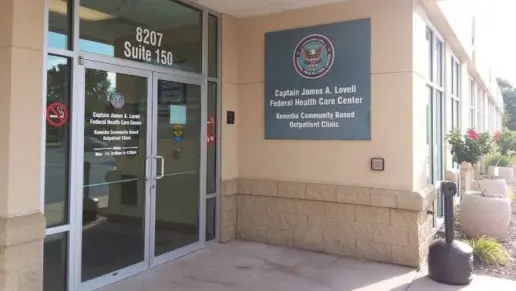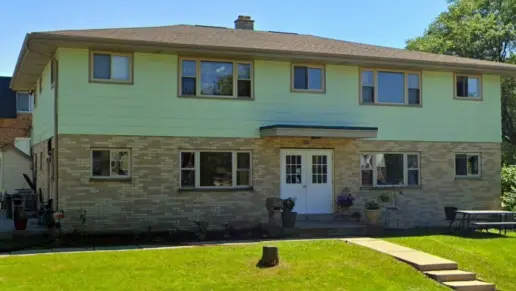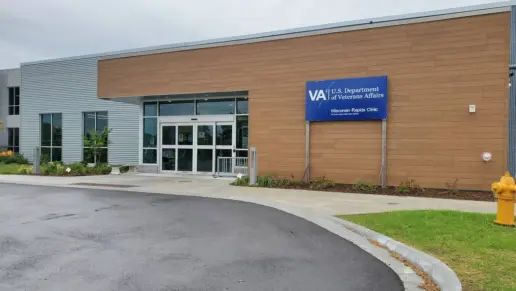I couldn't recommend them more, they have been there for me since the beginning. I wouldn't be clean without this place. Thank you for your kindness.
About Connections Counseling
Connections Counseling specializes in outpatient addiction treatment for adults, families and young people in Madison, Wisconsin. They offer general outpatient (OP) and intensive outpatient (IOP) programs depending on the level of care you require.
They prioritize healing and constructive development by using a strengths-based strategy. For young college students who use alcohol and cannabis they employ the harm reduction strategy. This means that they look for patterns of use, provide helpful advice about safe usage and look into the reasons behind these behaviors.
To help clients with substance use disorders, particularly those who also have co-occurring conditions, their clinicians work closely with the legal system. Their family therapy sessions aim to improve communication, settle disputes and fortify family bonds. These one-on-one sessions focus on achieving goals as a family and resolving issues together.
With the supportive and safe environment that group therapy offers, people can talk about their experiences with substance use. They can also practice new coping techniques, build relationships and share knowledge with one another.
An intensive outpatient program (IOP) that blends structured care with evidence based treatment is available. It is customized to match each client’s specific requirements as they move through the program. They also provide services for interventions. These are planned events attended by drug abusers, their loved ones and a trained interventionist who encourages the person to seek treatment.
Their team consists of skilled medical professionals including psychiatrists. They provide therapy in addition to writing prescriptions and managing drug orders. They also offer transcranial magnetic stimulation (TMS) that has been proven a viable noninvasive treatment for disorders such as major depressive disorder, anxious depression and obsessive compulsive disorder.
Rehab Score
Gallery
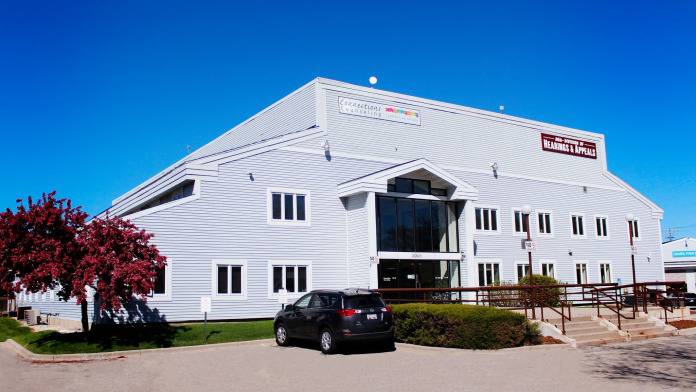

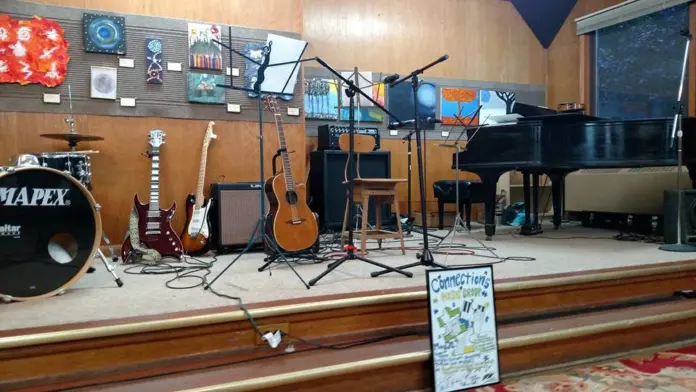
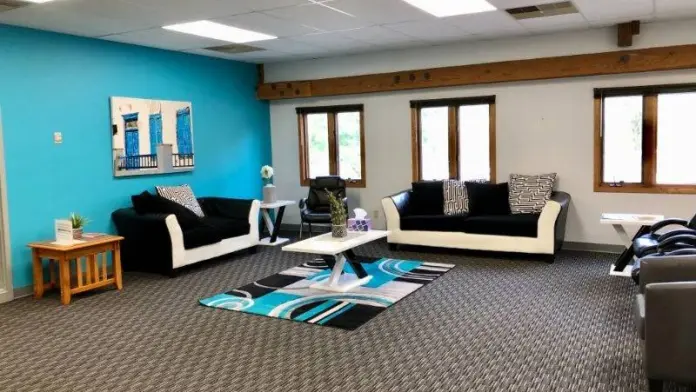
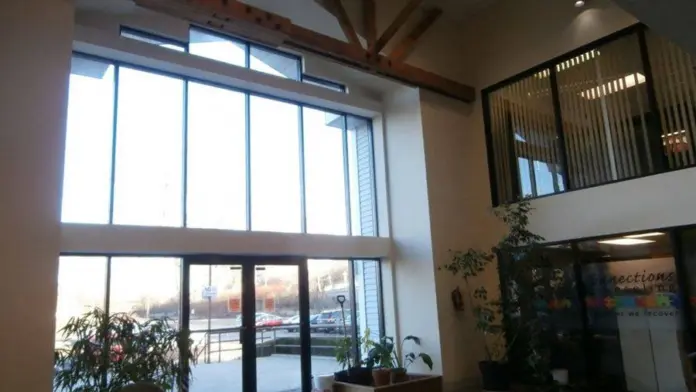
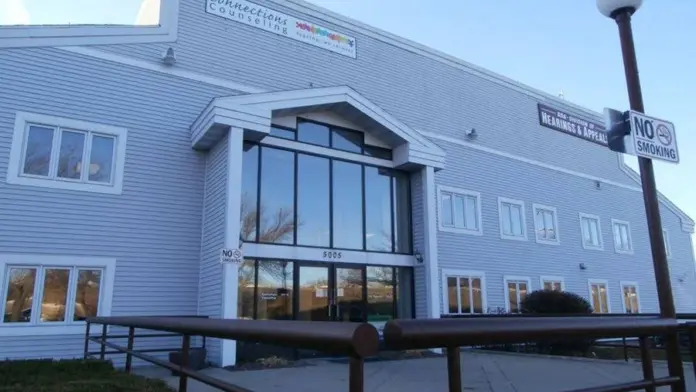
Location
Other Forms of Payment
Medicaid is a state based program that helps lower-income individuals and families pay for healthcare. Medicaid covers addiction treatment so those enrolled can use their coverage to pay for rehab. When a program accepts Medicaid the client often pays very little or nothing out of their own pocket.
Private insurance refers to any kind of healthcare coverage that isn't from the state or federal government. This includes individual and family plans offered by an employer or purchased from the Insurance Marketplace. Every plan will have different requirements and out of pocket costs so be sure to get the full details before you start treatment.
Self-pay involves paying for treatment out of your own pocket. You can use savings or credit, get a personal loan, or receive help from family and friends to fund your treatment. If you don't have insurance or your insurance plan doesn't cover a specific program, self-pay can help ensure you still get the care you need.
Sliding scale payments are based on a client's income and family size. The goal is to make treatment affordable to everyone. By taking these factors into account, addiction recovery care providers help ensure that your treatment does not become a financial burden to you or your family, eliminating one barrier to care.
Military members, veterans, and eligible dependents have access to specific insurance programs that help them get the care they need. TRICARE and VA insurance can help you access low cost or no cost addiction and mental health treatment. Programs that accept military insurance often have targeted treatment focused on the unique challenges military members, veterans, and their families face.
Addiction Treatments
Levels of Care
Treatments
The goal of treatment for alcoholism is abstinence. Those with poor social support, poor motivation, or psychiatric disorders tend to relapse within a few years of treatment. For these people, success is measured by longer periods of abstinence, reduced use of alcohol, better health, and improved social functioning. Recovery and Maintenance are usually based on 12 step programs and AA meetings.
The goal of drug rehab in Wisconsin is to address drug addiction as a complex issue that involves physical, mental, and relational aspects. During rehab, treatment focuses on each of these areas and gives you the tools you need to achieve and maintain sobriety.
Many of those suffering from addiction also suffer from mental or emotional illnesses like schizophrenia, bipolar disorder, depression, or anxiety disorders. Rehab and other substance abuse facilities treating those with a dual diagnosis or co-occurring disorder administer psychiatric treatment to address the person's mental health issue in addition to drug and alcohol rehabilitation.
A combined mental health and substance abuse rehab has the staff and resources available to handle individuals with both mental health and substance abuse issues. It can be challenging to determine where a specific symptom stems from (a mental health issue or an issue related to substance abuse), so mental health and substance abuse professionals are helpful in detangling symptoms and keeping treatment on track.
Opioid rehabs specialize in supporting those recovering from opioid addiction. They treat those suffering from addiction to illegal opioids like heroin, as well as prescription drugs like oxycodone. These centers typically combine both physical as well as mental and emotional support to help stop addiction. Physical support often includes medical detox and subsequent medical support (including medication), and mental support includes in-depth therapy to address the underlying causes of addiction.
Programs



Clinical Services
Group therapy is any therapeutic work that happens in a group (not one-on-one). There are a number of different group therapy modalities, including support groups, experiential therapy, psycho-education, and more. Group therapy involves treatment as well as processing interaction between group members. Connections Counseling offers a variety of groups to meet the needs of all ages, gender and specific areas of focus. Group involvement is typically a duration of at least 90 days with options to continue or become a group mentor. Groups provide positive group support ranging from recovery, anxiety, depression and other co-occurring topics. As clients attend groups, they have opportunities to decrease isolation, increase social connections and feel the true essence of acceptance and hope by both peers and staff.
In individual therapy, a patient meets one-on-one with a trained psychologist or counselor. Therapy is a pivotal part of effective substance abuse treatment, as it often covers root causes of addiction, including challenges faced by the patient in their social, family, and work/school life. Connections provides substance abuse and mental health individual therapy. Staff takes a unique approach to individual therapy based on practices that identify and build on the strengths of each individual. The facility works to provide best matches of patient needs to their diverse staff.
Research clearly demonstrates that recovery is far more successful and sustainable when loved ones like family members participate in rehab and substance abuse treatment. Genetic factors may be at play when it comes to drug and alcohol addiction, as well as mental health issues. Family dynamics often play a critical role in addiction triggers, and if properly educated, family members can be a strong source of support when it comes to rehabilitation. Connections Counseling provides educational and therapeutic support to families with evidence-based information on the neurochemistry of addiction, developmental stages, and effective parenting styles for teens and young adults. In addition, Connections Counseling provides counseling services to parents, children, siblings, spouses and any other family member affected by their loved one's addiction and/or mental health illness.
Dialectical behavior therapy (DBT) is a multi-week, closed, skill-based therapy group consisting of skill sets learned and rotated during the course. Skill sets include mindfulness, distress tolerance, emotional regulation and interpersonal effectiveness. DBT has been proven effective in treating people who have a history of substance use, impulse control issues, eating disorders, anger management, self-harm and anxiety. DBT for adults is a 16 week class. Additionally, a 6 week DBT class is tailored specifically for adolescents.
EMDR is a therapeutic modality originally developed to help process trauma. In an EMDR session, a patient is prompted to undergo eye movements that mimic those of REM sleep. This is accomplished by watching a therapist's finger move back and forth across, or following a bar of light. The goal is repetitive sets of eye movements that help the brain reprocess memory, which can significantly reduce the intensity of remembered traumatic incidents. Associated memories can heal simultaneously, leaving patients significantly calmer, more stable, and more emotionally relaxed.
Experiential therapy is a form of therapy in which clients are encouraged to surface and work through subconscious issues by engaging in real-time experiences. Experiential therapy departs from traditional talk therapy by involving the body, and having clients engage in activities, movements, and physical and emotional expression. This can involve role-play or using props (which can include other people). Experiential therapy can help people process trauma, memories, and emotion quickly, deeply, and in a lasting fashion, leading to substantial and impactful healing.
Amenities
-
Yoga Studio
Accreditations

The Joint Commission, formerly known as JCAHO, is a nonprofit organization that accredits rehab organizations and programs. Founded in 1951, the Joint Commision's mission is to improve the quality of patient care and demonstrating the quality of patient care.
Joint Commission Accreditation: Yes

The Substance Abuse and Mental Health Services Administration (SAMHSA) is a branch of the U.S. Department of Health and Human Services. Established in 1992 by congress, SAMHSA's mission is to reduce the impact of substance abuse and mental illness on American's communities.
SAMHSA Listed: Yes

State Licenses are permits issued by government agencies that allow rehab organizations to conduct business legally within a certain geographical area. Typically, the kind of program a rehab facility offers, along with its physical location, determines which licenses are required to operate legally.
State License: Wisconsin
Contact Information
5005 University Avenue
Suite 100
Madison, WI 53705
